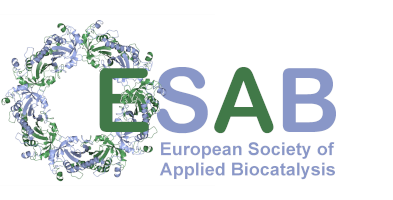EFCE Working Party Education: How can ChemEng Education for tomorrow come to be
Abstract
Chemical engineering education is changing more rapidly today than it has in a century. The discipline is developing into many (competing) specialization and the tools to teach challenge the learners as well as the teachers. The EFCE WP Education looks into what constitutes chemical engineering education today and how to incorporate new dimensions of the engineers’ responsibilities.
About the Speaker(s)
 Dr. Hermann J. Feise is an expert in particle technology, with technical interests in the fields of drying, agglomeration and handling of particles as well as the simulation of particle flow with modern numerical methods. A graduate of Technical University Braunschweig, Germany, and University of Waterloo, Canada, he joined DuPont (Wilmington, USA) as a principal investigator and later moved to BASF (Ludwigshafen, Germany). In BASF he was responsible e.g. for the Particle Formulation and Handling group at BASF's Chemical and Process Engineering department, globally providing expert services to the plants and laboratories of the BASF Group Companies. Today, Dr. Feise manages large innovation projects at BASF in the field battery materials and their sustainability. For almost three decades Dr. Feise has been active in professional associations at a national and international level. He participated in the development of the European Credit Transfer System (ECTS) in the 1990s and is a leader of the of the European Federation of Chemical Engineering (EFCE). From 2008 to 2012 he served as the Scientific Vice-President and from 2018 to 2021 as the President of the EFCE. He was also the chairman of the 8th European Congress on Chemical Engineering in Berlin in 2011 and the virtual 13th European Congress on Chemical Engineering in 2021. Today he is active as the chair of the EFCE Working Party on Education, as well as an industrial advisor at University College, London, UK and the University of Chemistry and Technology, Prague CR.
Dr. Hermann J. Feise is an expert in particle technology, with technical interests in the fields of drying, agglomeration and handling of particles as well as the simulation of particle flow with modern numerical methods. A graduate of Technical University Braunschweig, Germany, and University of Waterloo, Canada, he joined DuPont (Wilmington, USA) as a principal investigator and later moved to BASF (Ludwigshafen, Germany). In BASF he was responsible e.g. for the Particle Formulation and Handling group at BASF's Chemical and Process Engineering department, globally providing expert services to the plants and laboratories of the BASF Group Companies. Today, Dr. Feise manages large innovation projects at BASF in the field battery materials and their sustainability. For almost three decades Dr. Feise has been active in professional associations at a national and international level. He participated in the development of the European Credit Transfer System (ECTS) in the 1990s and is a leader of the of the European Federation of Chemical Engineering (EFCE). From 2008 to 2012 he served as the Scientific Vice-President and from 2018 to 2021 as the President of the EFCE. He was also the chairman of the 8th European Congress on Chemical Engineering in Berlin in 2011 and the virtual 13th European Congress on Chemical Engineering in 2021. Today he is active as the chair of the EFCE Working Party on Education, as well as an industrial advisor at University College, London, UK and the University of Chemistry and Technology, Prague CR.
